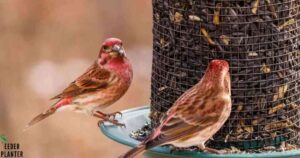As a dog owner, you’re always on the lookout for potential hazards that could harm your furry friend. One question that often pops up is, “Can dogs eat poppy seeds?” This comprehensive guide will delve into the dangers of poppy seeds for dogs, what to do if your pup ingests them, and how to keep your four-legged companion safe.
Introduction to Poppy Seeds and Dogs
Poppy seeds are tiny, kidney-shaped seeds harvested from the opium poppy plant. They’re a popular ingredient in many human foods, from bagels to muffins and even salad dressings. While these seeds add a delightful crunch and nutty flavor to our meals, they can pose a significant risk to our canine companions.
What Are Poppy Seeds?
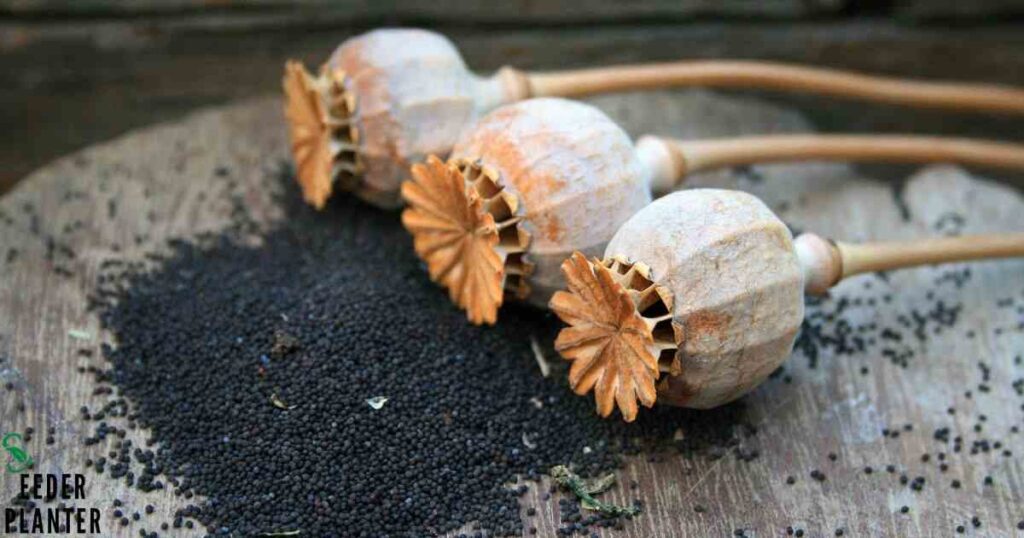
Poppy seeds come from the Papaver somniferum plant, commonly known as the opium poppy. These tiny seeds have been used in culinary applications for thousands of years, prized for their nutty flavor and nutritional value. In human cuisine, you’ll find poppy seeds sprinkled on bread, mixed into pastries, or ground into paste for various dishes.
Why Are We Concerned About Dogs and Poppy Seeds?
The concern about dogs and poppy seeds stems from the potential toxicity of these tiny seeds to our canine friends. While humans can safely consume poppy seeds in moderate amounts, dogs are much more sensitive to the compounds found in these seeds. This sensitivity raises the question: can dogs eat poppy seeds without risk? The answer, unfortunately, is no.
The Dangers of Poppy Seeds for Dogs
When we ask, “Can dogs eat poppy seeds?” we need to consider the potential risks involved. Poppy seeds contain trace amounts of opiates, including morphine and codeine. While these amounts are generally harmless to humans, they can have a significant impact on dogs due to their smaller size and different metabolism.
Toxic Components in Poppy Seeds

The main concern with poppy seeds lies in their opiate content. Opiates are powerful narcotic substances that can affect the central nervous system. In poppy seeds, the primary opiates of concern are morphine and codeine. Even though the amount in poppy seeds is minimal, it can be enough to cause problems for dogs.
How Poppy Seeds Affect a Dog’s Body
When a dog ingests poppy seeds, the opiates can quickly enter their bloodstream and begin to affect their nervous system. This can lead to a range of symptoms, from mild sedation to severe respiratory depression in more serious cases. The effects can vary depending on the amount ingested and the size of the dog.
Can Dogs Have Food with Poppy Seeds?
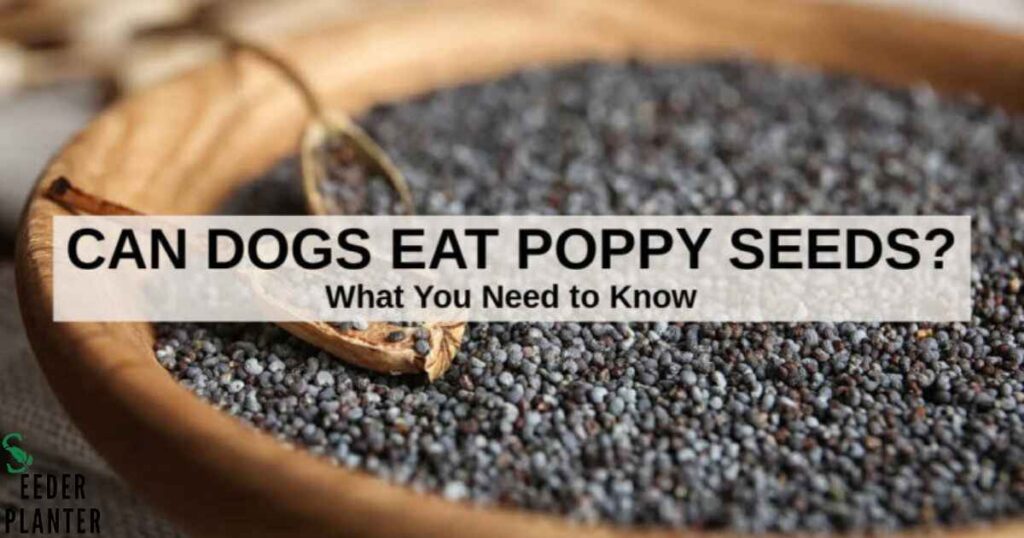
Given the potential risks, the question “Can dogs eat poppy seeds?” extends to foods containing these seeds as well. It’s crucial to be aware of common foods that might contain poppy seeds and understand why they’re dangerous for our canine companions.
Common Foods Containing Poppy Seeds
Poppy seeds are found in a variety of human foods. Some common examples include:
- Bagels and bread
- Muffins and cakes
- Salad dressings
- Pasta dishes
- Crackers and biscuits
It’s important to keep these foods out of your dog’s reach and to be cautious when eating them around your pet.
Why These Foods Are Dangerous for Dogs
Foods containing poppy seeds pose a double threat to dogs. Not only do they contain the potentially harmful seeds, but they’re often high in sugar, fat, or other ingredients that aren’t good for dogs. For example, a poppy seed muffin not only has the risk of opiate toxicity but also contains excessive sugar and calories that can lead to obesity and other health issues in dogs.
What to Do if Dogs Eat Poppy Seeds
If you’ve found yourself wondering, “Can dogs eat poppy seeds?” and realize your pup has already ingested some, don’t panic. Quick action is crucial, but knowing what steps to take can make all the difference.
Immediate Actions to Take
If you suspect your dog has eaten poppy seeds or foods containing them, the first step is to remove any remaining seeds or food from their reach. Next, try to determine how much your dog has consumed. This information will be vital for the veterinarian.
When to Contact a Veterinarian
In cases of poppy seed ingestion, it’s always better to err on the side of caution. Contact your veterinarian immediately, even if your dog isn’t showing symptoms. Describe what happened, how much your dog ate, and any symptoms you’ve observed. Your vet will guide you on the next steps, which may include bringing your dog in for examination.
How to Help Your Pup
Knowing how to help your dog after they’ve ingested poppy seeds is crucial. While professional veterinary care is often necessary, there are steps you can take at home to support your pet.
Home Care Tips
While waiting for veterinary advice or treatment, keep your dog calm and comfortable. Avoid giving them food or water unless instructed by your vet, as this could complicate treatment. Monitor your dog closely for any changes in behavior or new symptoms.
Monitoring Your Dog’s Symptoms
Watch for signs of poppy seed toxicity, which can include:
- Lethargy or excessive sleepiness
- Pinpoint pupils
- Difficulty walking or lack of coordination
- Slowed breathing
- Vomiting or loss of appetite
If you notice any of these symptoms worsening, contact your veterinarian immediately.
What Is Poppyseed Poisoning?
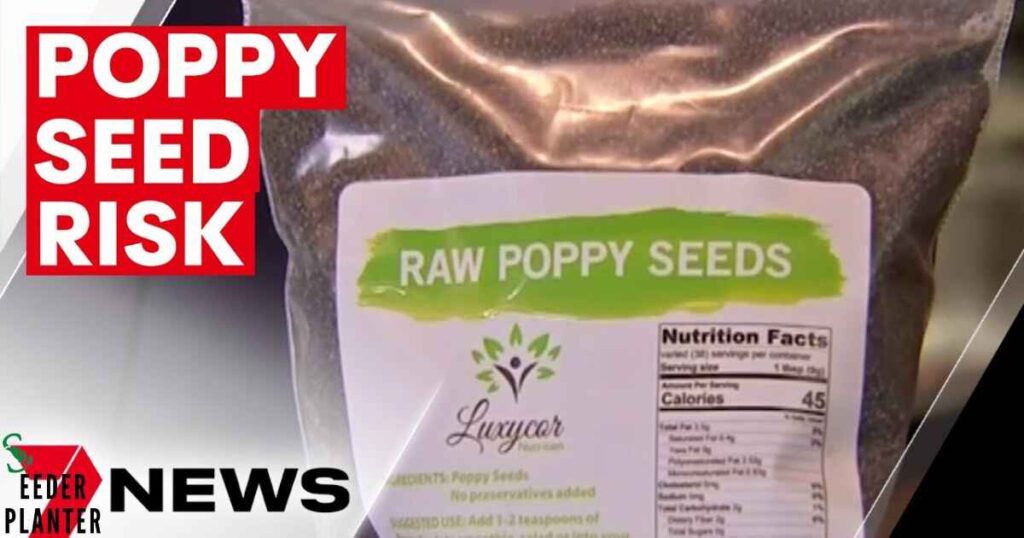
Poppyseed poisoning in dogs, also known as poppy toxicosis, occurs when a dog ingests a harmful amount of poppy seeds or other parts of the poppy plant. This condition can range from mild to severe, depending on the amount ingested and the individual dog’s sensitivity.
Symptoms of Poppy Seed Poisoning
The symptoms of poppy seed poisoning in dogs can vary but often include:
- Sedation or depression
- Pinpoint pupils
- Loss of appetite
- Difficulty walking or lack of coordination
- Slow heart rate
- Respiratory depression
- In severe cases, coma or death
Severity Levels of Poppy Seed Poisoning
Poppy seed poisoning can range from mild to severe. Mild cases may result in slight sedation and reduced appetite, while severe cases can lead to respiratory failure and even death. The severity often depends on the amount ingested relative to the dog’s size and individual sensitivity.
How Are Dogs Treated for Poppy Seed Poisoning?
If your dog has ingested poppy seeds and you’re wondering, “Can dogs eat poppy seeds without consequences?” it’s important to understand the treatment process. Treatment for poppy seed poisoning in dogs typically involves supportive care and addressing specific symptoms.
Read This Blog: scripture About PlantingSeeds: Cultivating Spiritual Growth?
Veterinary Procedures
Veterinary treatment for poppy seed poisoning may include:
- Inducing vomiting (if ingestion was recent)
- Administering activated charcoal to absorb toxins
- Intravenous fluids to support hydration and circulation
- Monitoring vital signs
- Oxygen therapy if breathing is affected
- In severe cases, specific opioid reversal drugs may be used
Medications Used in Treatment
The primary medication used in severe cases of poppy seed poisoning is naloxone, an opioid antagonist. This drug can quickly reverse the effects of opioids in the dog’s system. Other medications may be used to manage specific symptoms, such as anti-nausea drugs for vomiting or medications to support heart function if needed.
Recovery and Outlook
After treatment for poppy seed ingestion, most dogs recover well with proper care. The recovery process and long-term outlook can vary depending on the severity of the poisoning and how quickly treatment was administered.
Expected Recovery Time
In mild cases of poppy seed ingestion, dogs may recover within 24 to 48 hours with appropriate treatment. More severe cases may require several days of hospitalization and follow-up care. Your veterinarian will provide specific guidelines for your dog’s recovery.
Long-term Effects of Poppy Seed Ingestion
In most cases, dogs who receive prompt treatment for poppy seed poisoning make a full recovery without long-term effects. However, in severe cases or situations where treatment was delayed, there may be potential for lasting impacts, particularly if the dog experienced prolonged respiratory depression or other complications.
Can Dogs Eat Seeded Crackers?
When discussing whether can dogs eat poppy seeds, it’s natural to wonder about other seeded foods, like crackers. While some seeds are safe for dogs, others can be harmful.
Safe Seeds vs. Dangerous Seeds in Crackers
Not all seeds in crackers are dangerous for dogs. Some seeds, like pumpkin or sunflower seeds, can be safe and even beneficial in moderation. However, poppy seeds, as we’ve discussed, are not safe for dogs. Other potentially harmful seeds include apple seeds (which contain cyanide) and large seeds that could pose a choking hazard.
Also Read This Blog: Planting a Seed of Faith: Bible Verses and Spiritual Growth
Alternatives to Seeded Crackers for Dogs
Instead of seeded crackers, consider offering your dog safe, dog-specific treats. There are many commercial dog biscuits available, or you can make homemade treats using dog-safe ingredients. Always consult with your veterinarian before introducing new foods to your dog’s diet.
Prevention: Keeping Your Dog Safe from Poppy Seeds
Preventing poppy seed ingestion is key to keeping your dog safe. By implementing some simple strategies, you can significantly reduce the risk of your dog accessing poppy seeds or foods containing them.
Safe Food Storage Practices
Store all foods containing poppy seeds in secure, dog-proof containers or in areas your dog can’t access. Be particularly cautious with foods like bagels or muffins that might be left out on counters or tables. Remember, many dogs are skilled at reaching items we think are out of their reach!
Educating Family Members and Guests
Ensure that everyone in your household, as well as regular visitors, understands the dangers of poppy seeds for dogs. This includes children, who might not realize the harm in sharing their poppy seed muffin with the family pet. Clear communication can prevent accidental exposure.
Conclusion
In conclusion, the answer to “Can dogs eat poppy seeds?” is a resounding no. While these tiny seeds might seem harmless, they can pose significant risks to our canine companions due to their opiate content. From mild sedation to severe respiratory depression, the potential consequences of poppy seed ingestion in dogs are serious.
As responsible pet owners, it’s crucial to be aware of the foods that can harm our dogs and take steps to prevent accidental ingestion. By storing poppy seed-containing foods safely, educating family members and guests, and knowing what to do in case of ingestion, we can help keep our furry friends safe and healthy.
Remember, if you suspect your dog has eaten poppy seeds or any other potentially harmful substance, don’t hesitate to contact your veterinarian. Quick action can make all the difference in ensuring a positive outcome for your beloved pet.
Frequently Asked Question
How many poppy seeds are toxic to dogs?
The exact number of poppy seeds that can be toxic to dogs varies depending on the dog’s size, overall health, and individual sensitivity. Even a small amount of poppy seeds can potentially cause problems for dogs, especially smaller breeds. It’s best to avoid giving dogs any amount of poppy seeds to be safe.
Are all types of poppy seeds equally dangerous for dogs?
All types of poppy seeds contain trace amounts of opiates and should be considered potentially dangerous for dogs. While there may be slight variations in opiate content between different varieties of poppy seeds, the risk remains. It’s safest to keep all types of poppy seeds away from dogs.
Can poppy seed oil harm dogs?
Poppy seed oil, like the seeds themselves, may contain trace amounts of opiates. While the concentration is typically lower in the oil, it’s still best to avoid giving poppy seed oil to dogs. There are many safe, healthy oils that can be beneficial for dogs, such as fish oil or coconut oil, which are better choices for your pet’s health.

I am Alexander James, a seasoned professional with 4 years of expertise, brings passion and skill to every project. Elevate your experience with my knowledge and creativity.
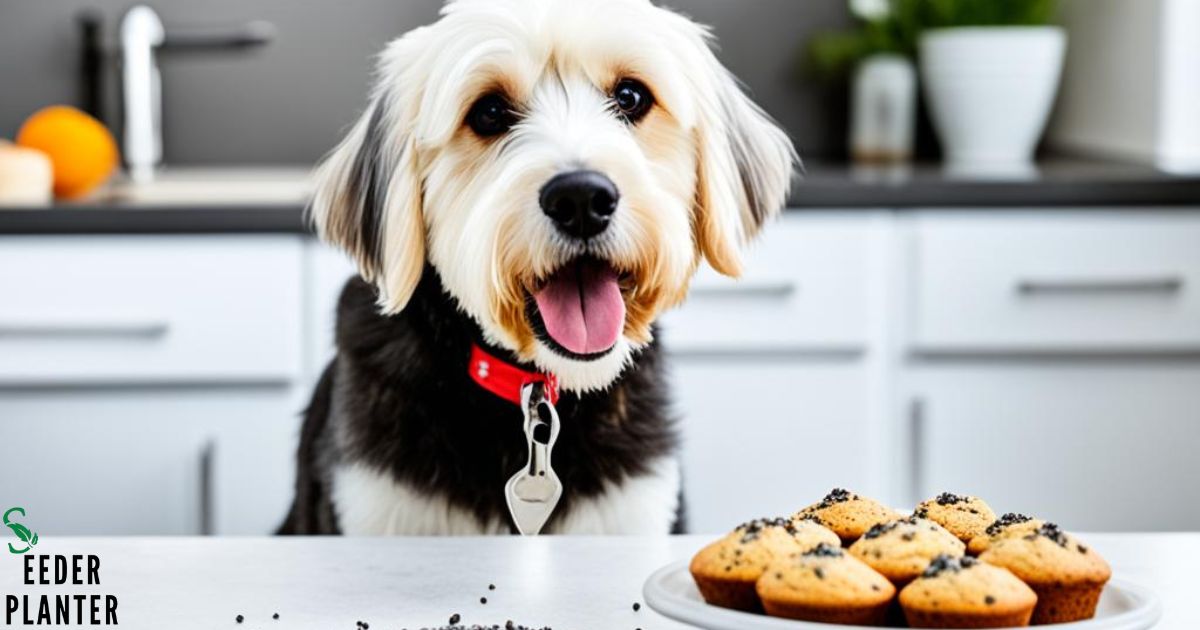

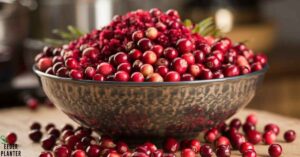
![Hollyhock Seeds: The Complete Guide to Success [2024]](https://seederabout.com/wp-content/uploads/2024/10/Hollyhock-Seeds-The-Complete-Guide-to-Success-2024-300x157.jpg)

